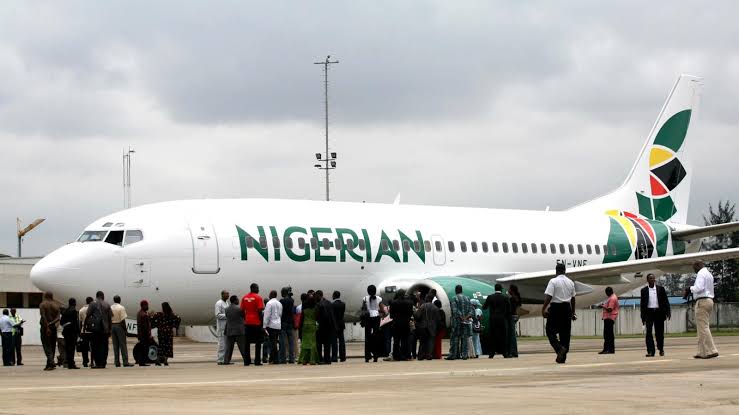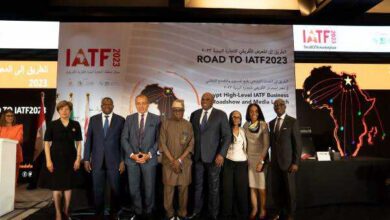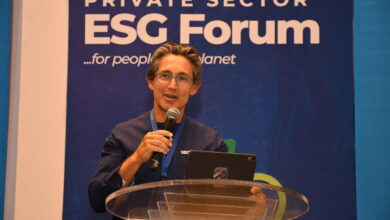Oil marketers refute AON’s claim of selling aviation fuel at N700

By ADAKU WALTER
Major Oil Marketers Association of Nigeria (MOMAN) has revealed that Aviation Turbine Kerosene (ATK), also known as aviation fuel (Jet A1) is sold at N580 and not N700 per litre, as being claimed by the Airline Operators of Nigeria (AON).
This followed controversies surrounding the operators’ threat to suspend flights across the country, due to continuous rise in the price of Jet A1 in the last four months, a move that was shelved prior to its commencement on Monday, May 9, 2022.
The Trumpet learnt that suspension of flights was dropped following appeals by the Federal Government and other stakeholders in the sector.
A statement issued by Chairman of MOMAN, Olumide Adeosun, revealed that with the intervention of the Nigerian National Petroleum Corporation (NNPC) in the last few weeks, aviation fuel was being brought into the marine terminal tanks in the country at between N480 and N500 per litre depending on the operators’ logistics efficiency.
He explained that due to high costs of specific handling of Jet A1 (special transport and continuous filtration), the product is sold on the tarmac at Ikeja for between N540 and N550 per litre and between N570 and N580 per litre in other airports.
Adeosun attributed the increase in price to the post-COVID global economy and the Russia-Ukraine crisis, adding that the downstream sector of the petroleum industry, which is engaged in logistics and distribution was also being affected by the high cost.
“With regard to aviation fuel, verifiable prices in West Africa range from $1.25 per litre in Ghana to $1.51 per litre in Liberia and even then, the product remains scarce in the sub-region. The escalating fuel price is unfortunate, MOMAN wishes to clarify that the situation is not peculiar to Nigeria, but is a global issue.
“Aviation fuel, like other petroleum products being used in Nigeria is not produced in country and is subject to international price movements, which are currently suffering increased post-pandemic demand and sanctions against Russia, a major producer of petroleum products, over the invasion of Ukraine.
“The shocks have seen international trading premiums, costs of vessels freight and other transport costs increase to worrisome levels. International traders are also exploiting the situation by selling only to the highest bidders,” the statement reads.
Read Also: NSCDC returns diverted patrol to right destination in Port Harcourt
MOMAN disclosed that the NNPC remains the major importer of aviation fuel for now, even though the product is deregulated, as it uses the nominal exchange rate of the Central Bank of Nigeria (CBNN). It said no independent importer would import aviation fuel as it is unable to access foreign exchange at N419 to the dollar.
Adeosun explained further: “In comparative terms, the aviation industry is already benefitting from government’s intervention when local prices are compared to West African regional prices, despite the deregulated status of aviation fuel. This situation is hardly sustainable given the already humongous N4 Trillion cost of the PMS subsidy.
“These interventions are sometimes necessary to mitigate shocks and help the economy, operating environment and members of the public adjust to the new realities, while efforts are being made and innovations introduced to optimise costs and increase efficiency.
He expressed the hope that the interventions could not be permanent and that the Russia-Ukraine war ends quickly, adding that the integration of products from local refineries into the supply chain of Dangote, NNPC and modular refineries will mitigate the high cost being borne by the government and Nigerians.
“A return to cost recovery in free market and competitive economy, as well as access to foreign exchange at competitive rates is inevitable for the sustainability of the production and distribution framework in the petroleum downstream industry. There is an urgent need to prepare the operating environment and indeed the larger economy for the eventual return,” he added.
MOMAN stressed that with the airline operators, private vehicle owners, logistics and transport companies, manufacturers, cooking gas users and others affected by the price increases globally, would naturally impact logistics, transportation, distribution and operation costs.
It restated its commitment to the institutionalisation and sustainability of a viable petroleum downstream sector in Nigeria and would continue to support efforts at reducing the burden of Nigerians.
Click on The Trumpet to follow us on our facebook page for more:




